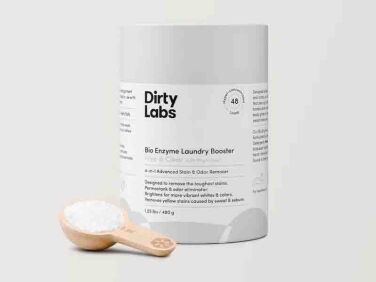Chances are you’ve been washing laundry the wrong way for years. Maybe you were taught that only hot water really gets things clean—especially white loads.
No longer. These days, cold water does just as good a job. And washing with cold is smarter all round: it uses less energy so it’s better for the environment, it causes less wear and tear on fabrics, and it saves money on your hot-water bills. It may be time for all of us to change our habits.
Today’s washers are specifically designed to operate with cold water. And today’s detergents—even those that don’t specify “cold-water wash”—will give outstanding results in low temps, thanks to their stain-attacking enzymes. (The same ingredient also lets you use much less detergent than you once did.)

But can cold water get the odors out of stinky gym clothes, you ask? Can it remove oily cooking stains and the like? Yes, it can. Just make sure you invest in a good-quality high-efficiency (HE) detergent—preferably one that specifies it’s for use in cold water. Cheaper detergents have fewer enzymes, so this is no place to pinch pennies—especially when you’r using cold water. Be sure to follow package instructions regarding how much is needed per load.
Washing in cold water benefits your laundry in many ways: it reduces shrinkage, minimizes fading, keeps colors from transferring, and causes fewer wrinkles. Hot water can set unsightly stains that you’ll never get out. And delicate fabrics always prefer cold. For best results, of course, you’ll want to sort your loads so you’re washing like colors together, and matching fabric weights. Don’t wash delicate items with rough fabrics or clothes that have
metal zippers.

You can still take extra measures, of course. If you’re especially concerned about odor, add a half-cup of baking soda (sodium bicarbonate) to the load. Bad stains? Try presoaking in water with detergent added. Or apply stain remover before you wash.
As for the rinse cycle, cold water is always appropriate. Don’t throw money away by rinsing with hot—according to Energy.gov, 20 percent of the energy used in the home goes to heating water. Your washer consumes 25 gallons every time it’s run. (Note that some washers have built-in heating units to bring the water up to a desired temperature, but that still wastes energy.)
If you’re wondering exactly what we mean by “hot” and “cold,” hot water in a washer is generally 130 degrees F or above. Warm is 90 to 110 degrees, while cold is 60 to 80 degrees. There are a few circumstances that might call for an exception to washing in cold water:
- Illness in the household. If you’re washing clothing worn by a sick person, use hot water to
stem the spread of infection. - Chilly weather. In northern climes, the temperature of tap water can be affected by the
thermometer reading outdoors. Your detergent may be less effective in water that’s below 60
degrees. In those cases, opt for warm until spring arrives. - Cleaner synthetics. Check the washing instructions on clothing items to see if they’ll get
cleaner with warm water. That can be the case with some synthetic fabrics, such as rayon,
polyester, and spandex.
If your existing machine is nearing obsolescence (say, 11 years or older), consider replacing it with one that will give you better results. And be sure to look for the EnergyStar label, which designates energy-efficient models—an EnergyStar-certified washer will use about a third less water and a quarter less energy than a standard model.

And now that you’ve given up hot-water washes, you might wonder about the damage caused (and energy squandered) by dryer heat. Consider line-drying instead. Your laundry (and pocketbook) will thank you.
N.B.: This story originally ran on March 18, 2022 and has been updated.






Have a Question or Comment About This Post?
Join the conversation